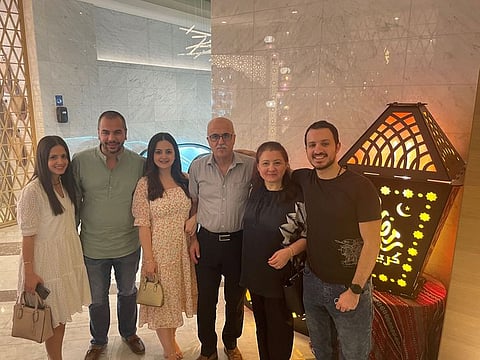Eid celebrations encompass a rich tapestry of traditions
UAE residents share their plans for Eid Al Adha

With Eid Al Adha around the corner, families in the UAE are busy making plans to celebrate the joyous occasion. The feast of sacrifice is a time for reflection, kindness and gratitude. We explore the unique cultural traditions and customs of people from diverse backgrounds as they eagerly wait to observe the festival.
Traditionally, Eid Al Adha is marked by a special prayer and the ritual of sacrifice, says Bangladeshi expat in the UAE Mohammed Rana. “We sacrifice livestock during Eid and share it with three different groups of people: the family, poor, and friends. After that, we usually sit together and prepare our favourite dishes, such as beef curry and falooda, and enjoy these along with other Eid sweets,” says Rana.
For Egyptian expat, Hatem El Sayed, Eid is a time to celebrate and uphold family traditions and pass them down to the next generation. “On the first day, we visit our friends and family; sit around food, immersed in nostalgia; and share our memories of Eid celebrations back home.
“After lunch, we usually go out so that the kids can play and the elders can enjoy the fresh air. It’s a day to unwind, relax and spend time with family. We also call and wish our family and friends staying far away from us.”
Indian expat Abdul Neyas is looking forward to celebrate Eid with his wife and two daughters. While he misses Eid celebrations back home in the south Indian state of Kerala, he enjoys being part of the multicultural celebrations in Dubai.
“Although Eid is celebrated with great fervour in Kerala, they are primarily attended by people of the same community. However, in Dubai, Eid transcends religious beliefs, bringing people from various communities together. We exchange gifts, prioritise kindness and share moments with friends and family. Our family also bond over Eid specialities such as biryani and kunafa,” Neyas says.
Similarly, Palestinian expat Amani Zaher also talks about Eid treats and expresses her love for homemade sweets that her family prepares during festivals. She says, “Mamoul, a homemade cookie filled with date, pistachio or walnuts, is a family favourite and we always serve this during family gatherings”.
This year, Amani plans to travel to Jordan to celebrate Eid with her family. “Giving Eidi is a unique custom where older relatives and family friends give away cash presents to children and other younger family members,” she says.
Dr Khalid Ahmed from Sudan is planning to stay in Dubai during Eid and book a staycation to unwind with his family. “We will visit our neighbours and relatives residing in the UAE on the first day of Eid, then we will set off for a staycation. We also have plans to attend some Eid events that take place across the city.”

Syrian expat Maysara Mohammed Sharaf Eddin has lined up some exciting outdoor activities with friends for Eid. “I will go for kayaking and swimming after Eid prayers,” he says.
Meanwhile, Emirati legal intern Mariam Al Fardan reflects on the true spirit of Eid. “This is the time to spread joy, donate to people who may be less fortunate, and share our meal with others. Eid Al Adha is the festival of sacrifice and for me, Eid always means happiness, togetherness and sharing. It gives us the opportunity to spend time with family and create new memories.”
The writers are interns at Gulf News Commercial Publishing
Sign up for the Daily Briefing
Get the latest news and updates straight to your inbox